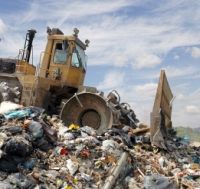

A repatriation process to remove 250,000 tonnes of Irish household and commercial waste, believed to have been illegally dumped in Northern Ireland between 2002 and 2004, was put into motion at the beginning of this month.
A team of 30-tonne capacity trucks have started working daily to remove waste from a site in Slattinagh, Garrison, Co Fermanagh and transfer it to an approved landfill facility in Ballynacarrick, Co Donegal.
After the site is cleared, work will begin on removing around 10,000 tonnes of refuse at a second site located near Trillick, Co Tyrone.
A further 18 sites in Northern Ireland have also been identified by the Northern Ireland Environment Agency as containing illegally dumped municipal and commercial waste from the Republic. It's estimated that the overall cost of the operation will be more than €36 million and will take around five years to complete.
Under an agreement between the Irish Government and the Northern Ireland Executive, all disposal costs of the rubbish, believed to have originated from Cork and Wexford, will be met by the Irish Government. The Northern Ireland authorities will meet 20% of the removal costs.
It is believed that the way the bin collection system works in the Republic was the catalyst for the illegal dumping of waste. In the Republic, contractors are paid to take rubbish away from households, rather than the service being provided by the council. This means contractors get rid of waste as cheap as possible in order to maximise profit, sometimes removing it to the North where landfill charges can be up to €150 cheaper.
Criminal gangs from both sides of the Border were believed to have been involved in the lucrative illegal waste trade, however prosecutions for illegal dumping have focused on the landowners who have allowed dumping on their land as they are easier to identify than the dumpers.
So far, four landowners have been imprisoned and fines of about £800,000 have been handed down, however the Irish Government will have little chance of recouping the estimated €36 million it will have to spend repatriating the waste through fines. Although the waste removed from the 20 sites across the North will be examined in an attempt to establish its origins.